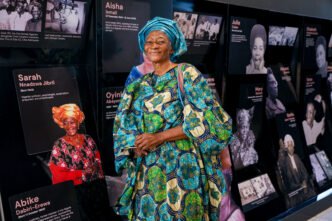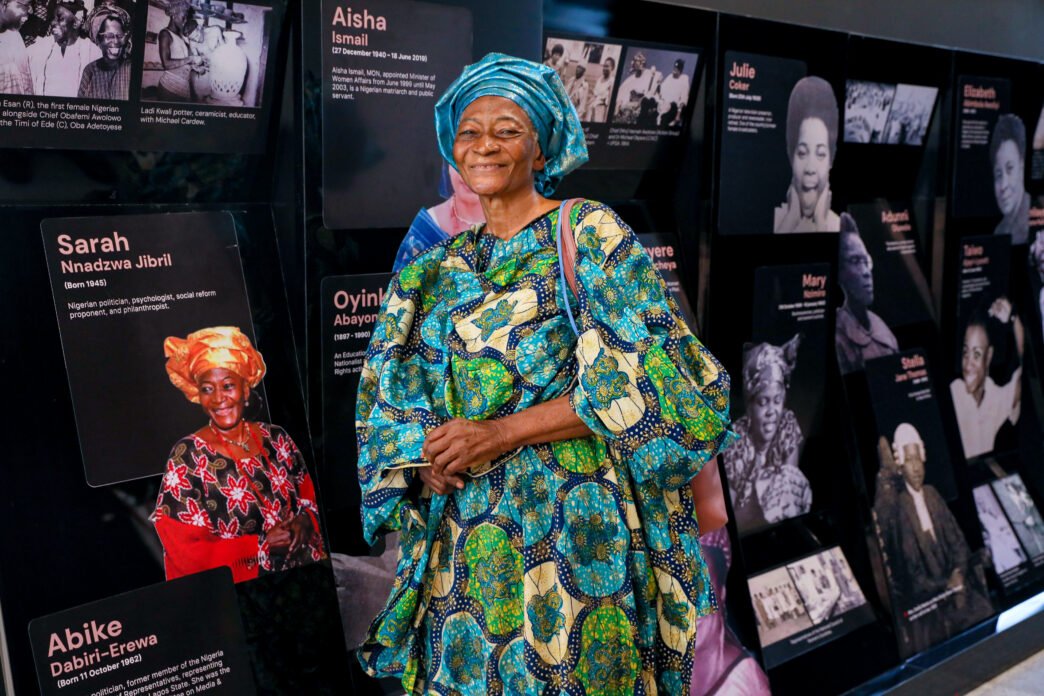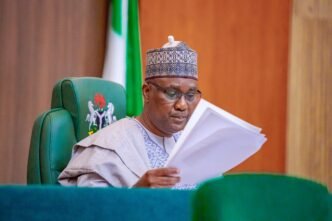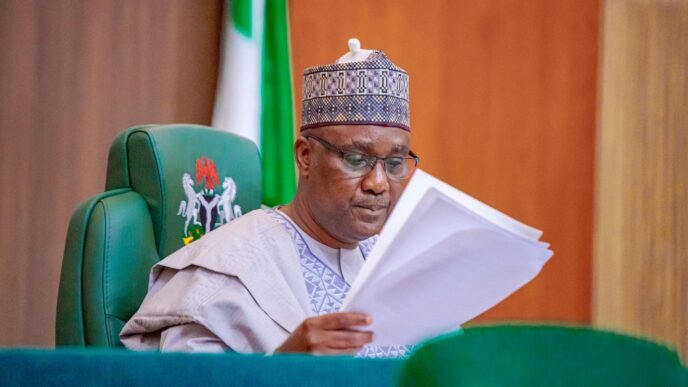The National Assembly Library was honored to welcome women’s leadership icon Dr. Sarah Nnadzwa Jibril, a trailblazer and pioneer in Nigeria’s political history, on a courtesy visit. Featured in the Women in Leadership exhibit at the National Assembly Museum, Dr. Jibril is the first woman to contest for the office of President of Nigeria, and has devoted her life to advancing women’s participation in governance and national development.
Early Life and Education
Born in March 1945 in the Pategi local government area of Kwara State and of Nupe heritage, Dr Jibril’s upbringing was marked by early promise and a strong academic and sporting record. She attended Queen Elizabeth School in Ilorin, where she excelled in athletics—captaining her house team in high jump and sprint events.
Initially aspiring to a medical career, she later accepted a scholarship for a diploma in education in the United Kingdom. On her return, she taught physical and health education at the Advanced Teachers’ College in Kano.
She further pursued higher education: a degree in recreational leadership from Senior Staff College (Fort Leavenworth, USA), a master’s degree in educational psychology from the University of Lagos, and work toward a social psychology thesis at Ahmadu Bello University in Zaria.
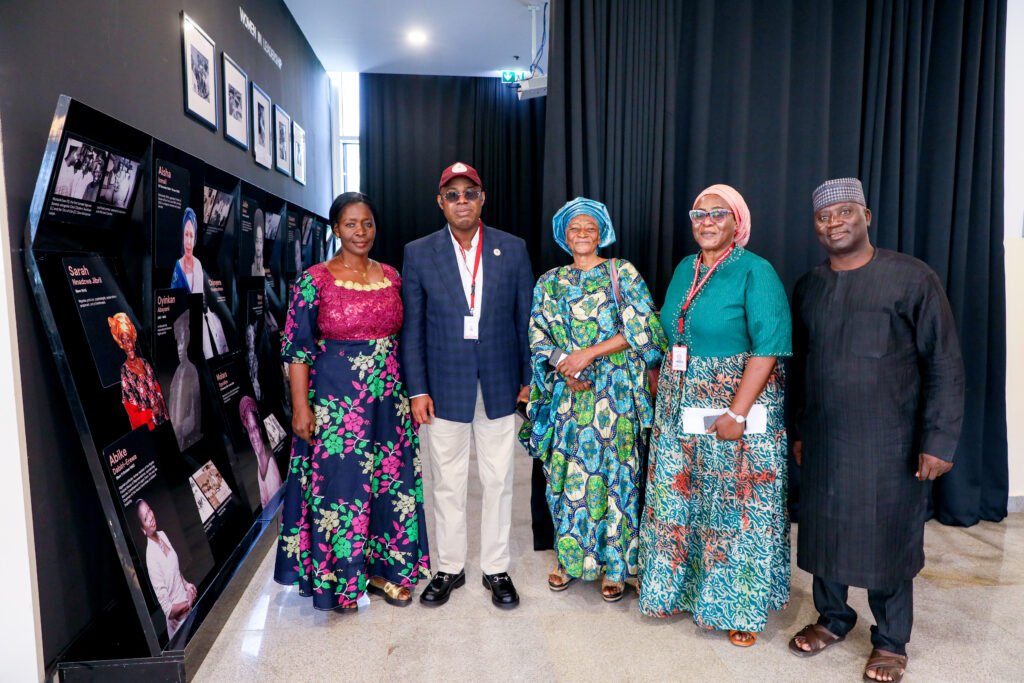
Early Career and Social Advocacy
Before entering full-scale politics, Jibril combined teaching, counselling and community service. She worked as a counsellor at the Armed Forces Psychiatric Hospital in Lagos (1977-78) and as an instructor in nursing at Makurdi (1980-81).
She also established the Human Development Foundation of Nigeria and the School for Beggar’s Children (1985-87), and actively promoted women’s and youth cooperatives in her home region.
Political Milestones and Trail-breaking Candidacies
Dr Jibril’s formal entry into public office began in the early 1980s when she contested for the Senate in Kwara State (1983) and later served in Kwara as Commissioner for Social Development, Youths, Sports and Culture (1987-88).
In 1992, under the Social Democratic Party (SDP), she broke new ground as the first woman to contest a presidential primary in Nigeria, placing fourth in her party’s primary for the nation’s highest office.
She sought the presidency again—under the People’s Democratic Party (PDP) in 1998, and later in the 2011 PDP primary in which she was the only female candidate, although she garnered a single vote.
These campaigns, though unsuccessful in electoral terms, were significant in symbolising the ambition and potential of women in Nigerian politics. Her persistence challenged prevailing barriers and helped expand public discourse around gender, leadership and governance.
Ethics, Values and Public Service
Between 2011 and 2015, Dr Jibril served as Special Adviser to President Goodluck Jonathan on Ethics and Moral Values. In that role she championed a national curriculum on ethics, the establishment of community transformation centres, and frameworks for values education.
She has argued that the decline in public morality, the rise in corruption and youth disengagement can only be addressed by strengthening values from the family level upwards.
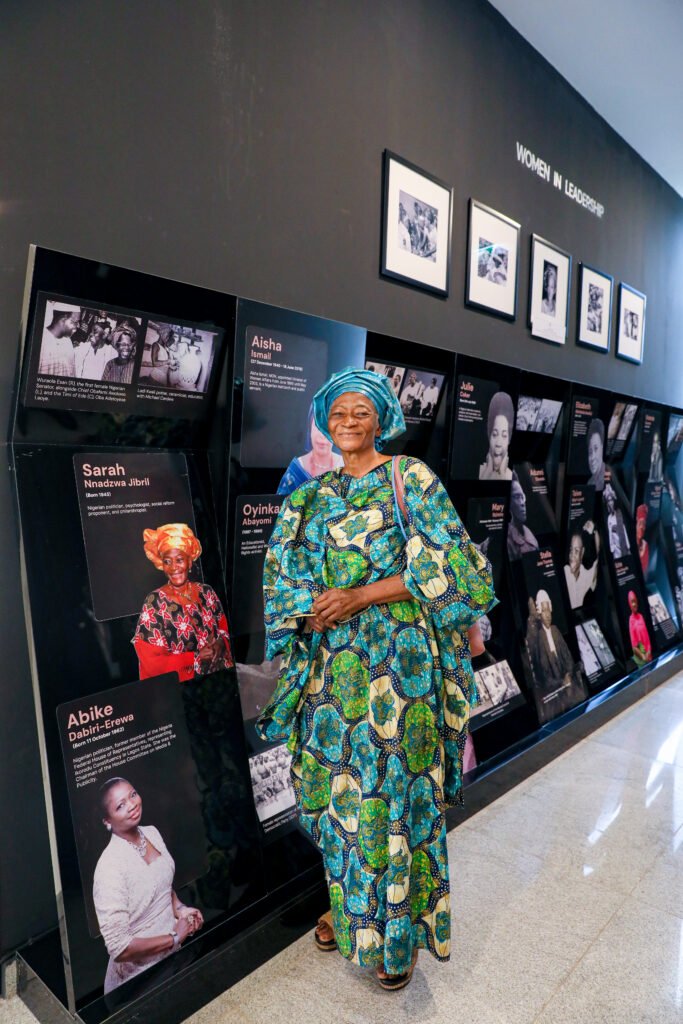
Legacy and Contemporary Relevance
Dr. Jibril’s visit to the National Assembly Library served as an inspiring reminder of the power of resilience, vision, and advocacy in shaping Nigeria’s future. Her journey—from teacher and counsellor to presidential candidate and national adviser—illustrates the interplay between personal conviction, institutional reform and civic empowerment.
